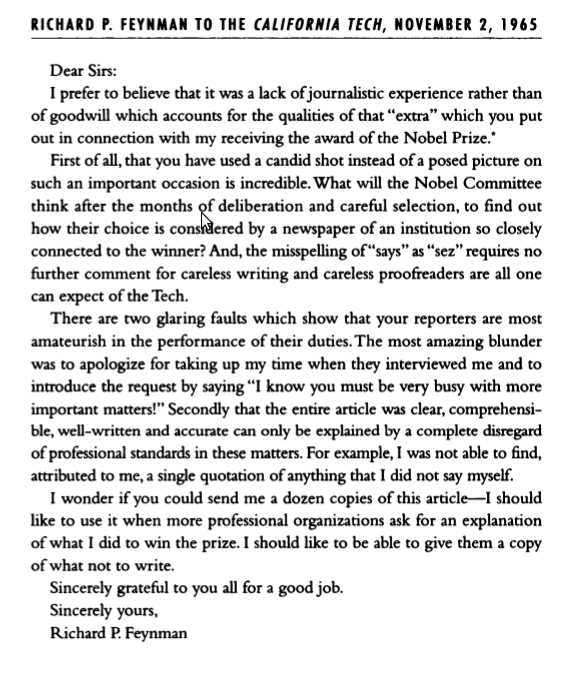None of the above. Feynman (one of my heroes, by the way) was being ironic: telling the newspaper staff that they had violated all the rules of professional journalism by
- being casual rather than stilted (using a candid photo instead of a stiff, posed shot; spelling "says" as "sez", which is bad English but accurate slang)
- being considerate and humble (apologizing for taking up Feynman's time, rather than assuming that the interview was more important than anything else he might be doing)
- being "clear, comprehensible, well-written and accurate" and not putting words in Feynman's mouth.
If you read Surely You're Joking, Mr. Feynman or What Do You Care What Other People Think? (both of which I highly recommend), you'll see that he had very little use for the self-importance of journalists, and much less patience for the innumerable interviews (especially after he won the Nobel Prize) in which he was constantly mis-quoted
and his scientific work mis-explained.
Essentially, he was thanking the interviewer for not being "professional", because he was sick and tired of professional interviews.

